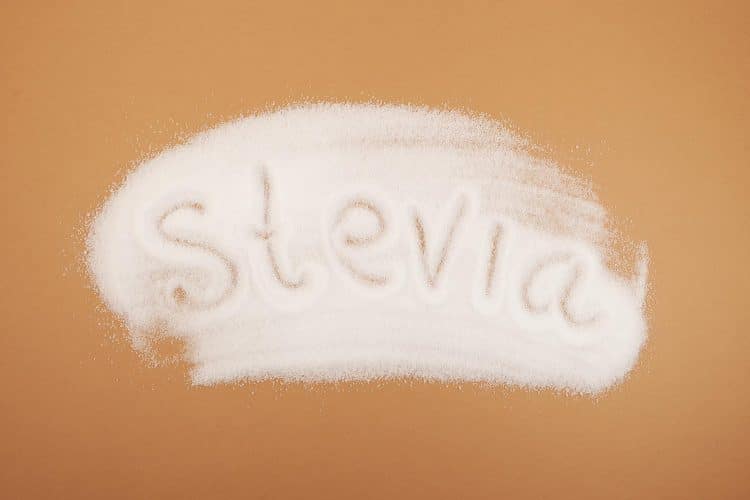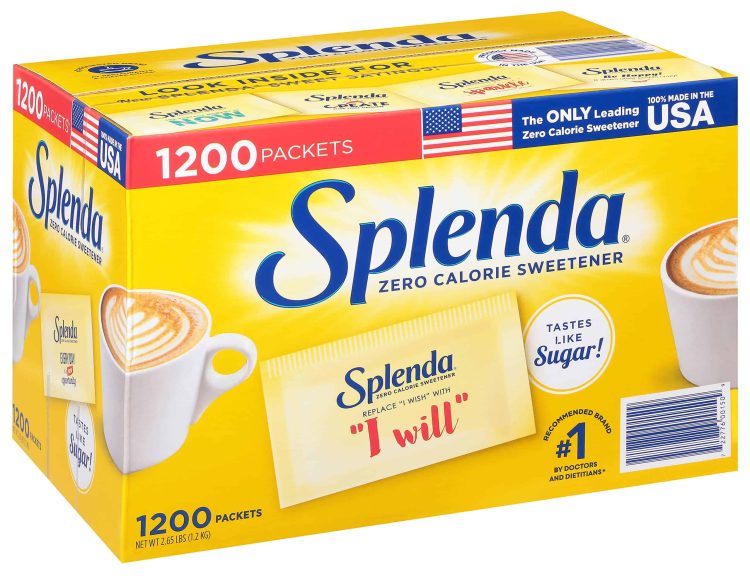“Can Splenda break my fast?”
Does this question bother you as you add a spoonful of the product to your tea during your intermittent fasting window?
Splenda uses sucralose, which is an artificial sweetener. Although it is a sugar substitute, Splenda contains no calories and is much sweeter.
Will This Break Your Fast?
Find out if coffee, tea, sweeteners, and other drinks break your fast based on your specific fasting goals.
Check What Breaks My Fast →Honey, corn or maple syrup, jaggery, and other sugar substitutes are high in calorific value. Even consuming a little can spike your insulin and throw your body out of the fasted state. However, Splenda is different. This article covers Splenda’s composition, usage, and side effects.
What is Splenda?
Splenda was developed in 1976 as an artificial sweetener with zero calories. As a standard sucralose-based product, Splenda emerged as a sugar replacement product in the market. Sucralose is derived from sugar and undergoes multiple chemical processes that substitute chlorine atoms present in the compound with the requisite hydrogen and oxygen groups. [1]
Tate & Lyle and Johnson & Johnson developed Splenda in the 1970s. Later in the 1990s, Splenda emerged as one of the most popular sweeteners in the country.
Today, Splenda is used widely in cooking, baking, and beverages as it is heat stable. [2]
Although sucralose has no calories, the composition of Splenda indicates the presence of carbohydrates dextrose and maltodextrin, which can contribute to your calorie count, albeit insignificantly. Studies reveal that Splenda is safe to consume in moderation and is found in packaged foods, ready-made meals, a variety of desserts, toothpaste, drinks, chewing gum, etc. [3]
Splenda Nutritional Facts
1-gram Splenda packets contain 3.36 calories, 0.9 grams of carbohydrates, 0.8 grams of sugar, and no fats.
Splenda mimics sugar’s sweetness and is convenient to carry with you. Sucralose, an indigestible artificial sugar, contributes to the product’s sweetness. Splenda contains chemicals such as dextrose and maltodextrin. The former is identical to regular glucose, while the latter is a starch-like compound broken down into smaller pieces. Maltodextrin is said to have a higher glycaemic index than your standard table sugar. Hence, it can raise blood glucose levels more quickly than regular sugar. [4]
Does Splenda Break A Fast?
Keeping your insulin response low is vital when burning fat. So, if you are fasting to reduce weight, consuming anything that triggers an insulin response will break your fast. With a higher glycaemic index, maltodextrin can raise blood glucose to release insulin and break your fast.
Splenda and Intermittent Fasting to Lose Fat
Your intermittent fasting regimen comprises two phases — eating and fasting. Though you may not consume anything other than water or calorie-free beverages in the fasting window, the IF eating window does not have any such rule. However, adding Splenda to your tea, coffee, or other beverages could do more harm than good for your weight loss goals.
Splenda is made from natural sugar, processed chemically. Although it may appear calorie-free, the carbohydrates dextrose and maltodextrin may negatively impact your metabolism, impacting your fat-loss progress.
Will Sucralose Raise Blood Sugar Levels During Fasting?
Sucralose is a non-caloric substance that doesn’t trigger an insulin response. However, Splenda contains dextrose and maltodextrin. With a higher glycaemic index, the latter can raise your blood glucose much faster, leading to insulin release and breaking your fast [5]. Moreover, excessive use of sucralose can induce dysbiosis, glucose intolerance, and possibly metabolic disease. [6]
How does Splenda Affect Insulin?
Splenda can react with your tongue receptors, thus giving you the sensation of tasting something very sweet. [7]
Splenda can trigger the cephalic phase during insulin release to cause a rise in your insulin levels. Regular insulin use can impact gut health as it alters bacteria and makes cells increasingly resistant to naturally produced insulin [8]. It can cause insulin and sugar levels to rise. The sudden increase in insulin levels may lead to decreased receptor activity caused by insulin resistance. [9]
Artificial sweeteners such as Splenda have also been associated with an increase in the incidence of type 2 diabetes. This can also impact body weight. Due to reduced glucose absorption, glycaemic control is affected as well.
Does Sucralose Affect Ketosis?
Ketosis is the metabolic state where the body burns fat instead of glucose. Sucralose is not keto-friendly. Sucralose can spike blood sugar and insulin levels to promote fat storage and prevent the body from getting into ketosis. The body needs to maintain a low insulin and blood sugar level to switch to ketosis, where the body can move from burning glucose to burning fat. But because high sucralose will prevent that, your ketosis level will likely remain low.
Will Sucralose Make it Harder to Fast and Control Hunger?
For people sensitive to artificial sweeteners, sucralose consumption can trick the brain into feeling hungry, resulting in excessive calorie consumption. Although people on their weight loss journey often use sucralose, it could lead to weight gain, uncontrollable hunger pangs, type 2 diabetes, and other metabolic disorders.[10]
What To Have Instead of Splenda?
Splenda is the only common sugar alternative for people practicing fasting. However, if you want to avoid it, here are a few things that can work as a substitute. You can use stevia instead of Splenda.
Stevia is a naturally derived sweetener from the stevia plant’s leaves. The leaves of the plant are dried and steeped in hot water before being processed and marketed in powder form. Stevia is calorie-free and available in blends as well.

Does Splenda Use Cause any Side Effects?
Moderate consumption of Splenda may not cause any side effects. However, regular use or increased consumption could harm your body. Some of the common side effects of Splenda include visible changes in the gut flora. Some people could experience gas, diarrhea, bloating, or have a laxative gut effect.
Splenda’s Indirect Effect on the Gut Microbiome
A healthy gut reduces bloating, produces less gas, and facilitates smooth digestion. Consumption of Splenda may increase nitrogen gas and water content in your colon, causing symptoms of diarrhea.
Studies show that sucralose could reduce healthy bacteria in your gut and increase bacteria found in stools. Hence, regular consumption of sucralose can lower a healthy microbiome. [11] Moreover, Splenda-like artificial sweeteners can induce glucose intolerance. [12]
Studies reveal that artificial sweeteners are non-nutritive and can hinder the growth of pathogenic bacterial species. As beneficial bacteria play a vital role in metabolism, their dysfunction can cause insulin resistance and obesity. [13]
Is Sucralose A Safe Food Ingredient?
Yes, sucralose is a safe ingredient, and the FDA has approved it as a compound that can be safely used in food.
Other Names For Sucralose
Sucralose is sold under the brand name Splenda.
Frequently Asked Questions
How Do Artificial Sweeteners Affect Breast Feeding?
Artificial sweeteners are common, but studies reveal that consumption of such sweeteners during pregnancy and breastfeeding may influence the infant’s Body Mass Index (BMI). [14]
Can I take coffee with milk and Splenda during the fasting period?
Both Splenda and milk have calories. These can raise your blood sugar levels because of the insulin response, negating the benefits of fasting.
Does taking black coffee with artificial sweetener break my fast?
Yes, it could. Artificial sweeteners, such as Splenda, may not cause an immediate spike in blood sugar, but they can reduce the effect of your ketones and prevent your body from burning fat.
Can I add milk and very little sugar to my tea while intermittent fasting?
Consuming tea with milk or sugar can break your fast as these have calories.
Are six packets of Splenda per day dangerous for my health?
Splenda may not be bad for you, but having six packets of it amounts to consuming six grams of Splenda in a day. This may cause health effects such as increased sugar cravings, leading to weight gain. Also, excessive Splenda intake has been associated with gastrointestinal issues.
Does Splenda cause vertigo?
The sucralose present in Splenda can cause dizziness, head spinning, sluggishness, and mood swings. People on too much Splenda may feel symptoms similar to vertigo due to high blood glucose levels.
Is it true that Splenda prevents nutrient absorption and reduces good bacteria in your intestines?
Yes, too much Splenda consumption can interfere with nutrient absorption and reduce the good microbiome in your intestines.
How do artificial sweeteners affect gout?
Artificial sweeteners that contain large amounts of fructose can increase the serum uric acid in the body, thereby affecting gout.
Final Thoughts
Does Splenda break a fast? Yes, it can add calories to your body and throw you out of the fasting state. The other ingredients in Splenda can trigger a GI or insulin response by raising your blood sugar levels. Combining Splenda with tea or coffee can interfere with your fasting regimen.
If you don’t want to break your fast or spike your insulin levels, avoid using Splenda and switch to natural calorie-free sweeteners.
Learn more about fasting
- Fasting Electrolyte Calculator - Sodium, Potassium, Magnesium
- PSMF Calculator - Protein Sparing Modified Fast
- Fasting Schedule Generator - Build Your Plan
- Ketosis Calculator - When Do You Enter Ketosis?
- Metabolic Switching Calculator - Fat Burning Timeline
- 5:2 Diet Calculator - Fast Day Calories
- IF Macro Calculator - Intermittent Fasting Macros
- Live Fasting Timer - Track Your Fast in Real Time
References
Fitness Volt is committed to providing our readers with science-based information. We use only credible and peer-reviewed sources to support the information we share in our articles.
- PubChem. “Sucralose.” Sucralose | C12H19Cl3O8 – PubChem. Accessed January 6, 2023.
- Additional Information about High-Intensity Sweeteners Permitted for Use in Food in the United States FDA. “Additional Information about High-Intensity Sweeteners,” February 8, 2018.
- WebMD. “What to Know About Sucralose,” June 8, 2021.
- Mathur, Kushagra, Rajat Kumar Agrawal, Shailesh Nagpure, and Deepali Deshpande. “Effect of Artificial Sweeteners on Insulin Resistance among Type-2 Diabetes Mellitus Patients.” PubMed Central (PMC), January 28, 2020
- A 12-week randomized clinical trial investigating the potential for sucralose to affect glucose homeostasis – ScienceDirect. “A 12-Week Randomized Clinical Trial Investigating the Potential for Sucralose to Affect Glucose Homeostasis,” May 11, 2017.
- Suez, Jotham, Tal Korem, David Zeevi, Gili Zilberman-Schapira, Christoph A. Thaiss, Ori Maza, David Israeli, et al. “Artificial Sweeteners Induce Glucose Intolerance by Altering the Gut Microbiota – Nature.” Nature, September 17, 2014.
- Ma, Jing, Max Bellon, Judith M. Wishart, Richard Young, L. Ashley Blackshaw, Karen L. Jones, Michael Horowitz, and Christopher K. Rayner. “Effect of the Artificial Sweetener, Sucralose, on Gastric Emptying and Incretin Hormone Release in Healthy Subjects.” PubMed Central (PMC), February 12, 2009.
- PubMed. “Effects of Sucralose on Insulin and Glucagon-like Peptide-1 Secretion in Healthy Subjects: A Randomized, Double-Blind, Placebo-Controlled Trial – PubMed,” November 1, 2018.
- Romo-Romo, Alonso, Carlos A Aguilar-Salinas, Griselda X Brito-Córdova, Rita A Gómez-Díaz, and Paloma Almeda-Valdes. “Sucralose Decreases Insulin Sensitivity in Healthy Subjects: A Randomized Controlled Trial.” OUP Academic, September 1, 2018.
- The relative reinforcing value of sweet versus savoury snack foods after consumption of sugar- or non-nutritive sweetened beverages – ScienceDirect. “The Relative Reinforcing Value of Sweet versus Savory Snack Foods after Consumption of Sugar- or Non-Nutritive Sweetened Beverages,” January 23, 2017.
- Hindawi, Arthur Omran, Gregory Ahearn, Doria Bowers, Janice Swenson, and Charles Coughlin. “Metabolic Effects of Sucralose on Environmental Bacteria.” Metabolic Effects of Sucralose on Environmental Bacteria, December 3, 2013.
- Suez, Jotham, Tal Korem, David Zeevi, Gili Zilberman-Schapira, Christoph A. Thaiss, Ori Maza, David Israeli, et al. “Artificial Sweeteners Induce Glucose Intolerance by Altering the Gut Microbiota – Nature.” Nature, September 17, 2014.
- Wang, Qiao-Ping, Duncan Browman, Herbert Herzog, and G. Gregory Neely. “Non-Nutritive Sweeteners Possess a Bacteriostatic Effect and Alter Gut Microbiota in Mice.” Non-nutritive sweeteners possess a bacteriostatic effect and alter gut microbiota in mice | PLOS ONE, July 5, 2018.
- PubMed. “Association Between Artificially Sweetened Beverage Consumption During Pregnancy and Infant Body Mass Index – PubMed,” July 1, 2016.
Tip: If you're signed in to Google, tap Follow.











